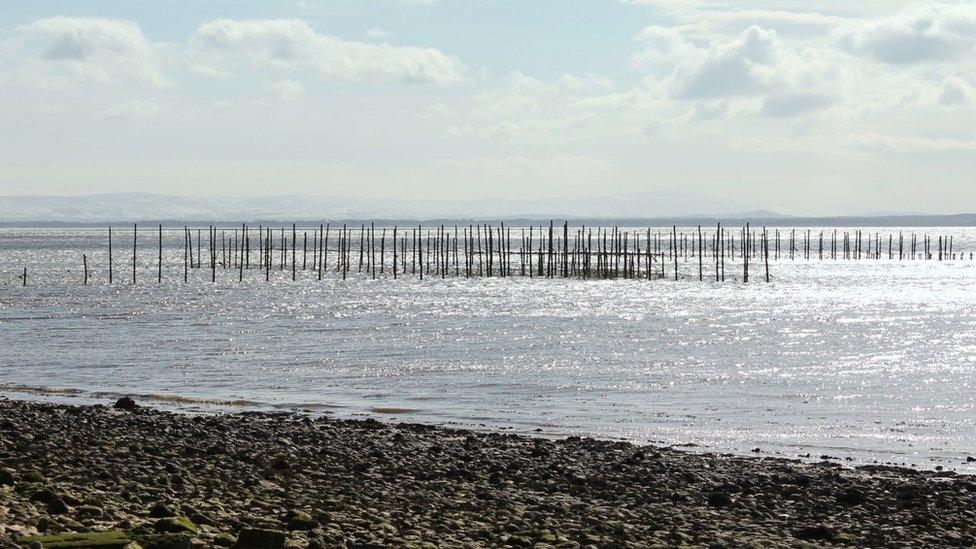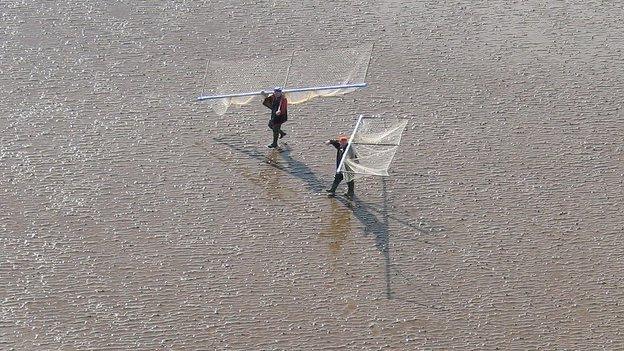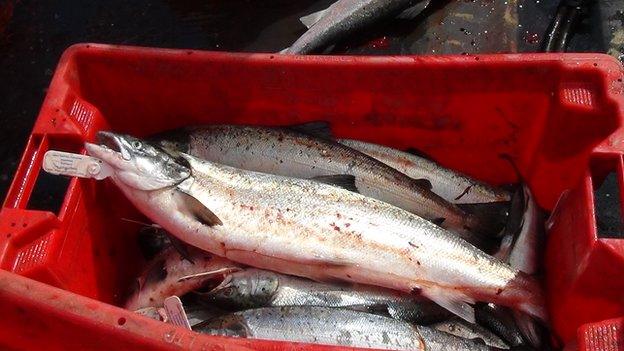Traditional Solway fishing fears aired
- Published

Traditional fishing methods like stake netting are said to be under threat
Fears for the future of traditional fishing methods which have been used on the Solway for centuries are to be aired at a special meeting.
It comes in light of a proposed ban on catching and killing wild salmon which is one of a large number of possible moves under a review of the sector.
The action is being considered to help protect stock levels.
However, a meeting in Annan will hear it could have a devastating impact on the likes of poke and haaf netting.
The Scottish government is currently considering a possible ban on the killing of salmon except under licence.
It is aimed at ensuring there is no threat to vulnerable stocks.
A report to the Annan common good fund sub-committee outlines a draft response to the move.

Haaf netting on the Solway is reckoned to date back to around 900 AD
It highlights the importance of the "unique methods of fishing" which are carried out on the Solway Firth.
Haaf netting is thought to have been introduced to the area by Viking settlers in around 900 AD.
It involves the use of a net mounted on a large rectangular frame supported by three legs.
This frame is placed across the current by a fisherman standing behind the net who then walks out into the flat, shallow waters to catch the fish.
"It is a heritage that has almost died out and now only exists on the Solway," the report states.
It also calls for the stake netting and poke netting traditions to be maintained.
The report argues that these methods should be considered "exceptional" and that local salmon conservation management should be allowed.
It also points out that licences for these fishing activities provide the main source of income for the Annan common good fund and any reduction would affect its ability to support local community groups and projects.
- Published12 June 2015
